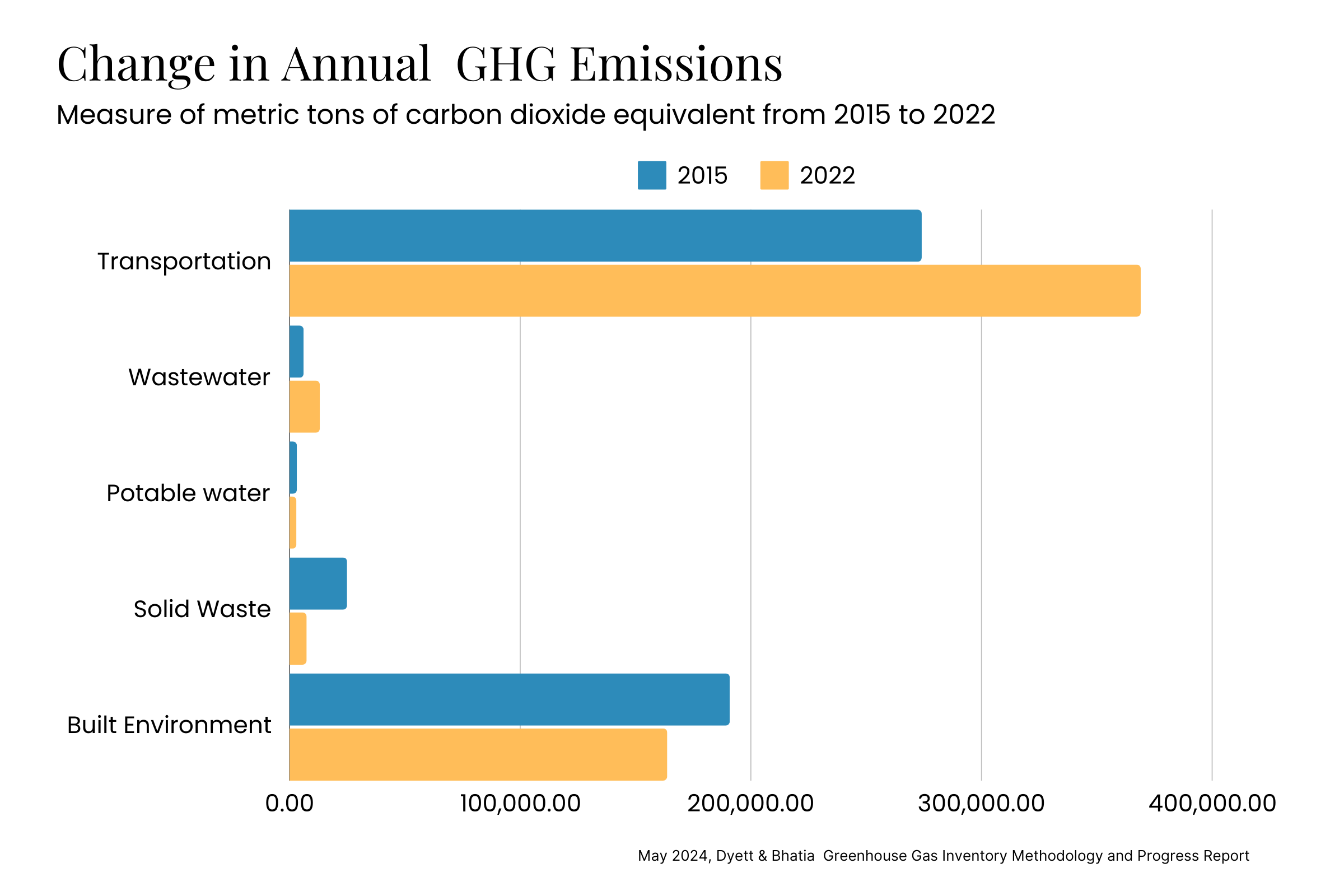$16M approved for City Hall, 2-story ADUs, NYE Orange Drop
Redlands News Weekly: Dec. 19, 2025
Residents invited to shape new strategies for meeting stricter state emission guidelines by 2050

REDLANDS, Calif. – The City of Redlands is inviting residents to participate in a survey to help shape its updated Climate Action Plan (CAP) as the city adapts to evolving climate regulations and technologies.
The brief survey is available online until Oct. 20.
Why it matters: A recent report on local greenhouse gas emissions reveals that Redlands' 2017 Climate Action Plan (CAP) has been ineffective in meeting local emission targets. Meanwhile, the state of California has implemented new stricter guidelines for emission reduction by 2050.
Details: Redlands first adopted its CAP in 2017 alongside the 2035 General Plan, aiming to align city policies with California’s goals to reduce greenhouse gas emissions.
However, according to a recent study, the city has “not monitored progress since the 2017 CAP was prepared,” and emissions have risen 11% between 2015 and 2022.
"In per capita terms, this is an increase from about 7.1 metric tons of carbon dioxide equivalent per capita in 2015 to 7.7 in 2022,” said Mayu Tanaka, senior associate and project manager from Dyett & Bhatia, the consultants for the Redlands Climate Action Initiative.
During this period, the population of Redlands increased by about 3,200 or 4.5%.
Transportation not only saw the highest increase in emissions (34%) but also contributed the highest amount to the city's emissions.
While wastewater is not a high-emission sector, it saw a 115% increase in emissions.
Emissions fell during the seven-year period for potable water, solid waste, and the "built environment." "Built environment" includes electricity and natural gas usage from houses, businesses and industrial buildings, as well as public lighting.

Impact of 2017 CAP: The General Plan policies outlined in the 2017 CAP focus on reducing transportation emissions by promoting biking and walking and providing incentives to increase the efficient use of land for parking.
If all the measures outlined in the 2017 report had been implemented, the report estimated that they would have reduced emissions by just 1.5% (or 8,000 metric tons of carbon dioxide equivalent per year).
The CAP update seeks to address technological and environmental changes in the last seven years.
The community’s feedback will play a crucial role in ensuring the plan reflects the values of Redlands residents.
About the survey: The seven-minute survey includes questions on a variety of topics such as energy efficiency, electric vehicles, sustainable transportation, climate resilience, and equity.
Residents are asked to weigh in on their likelihood of adopting all-electric homes, energy-saving technologies, and electric vehicles in the near future.
The survey also gathers opinions on ways to make Redlands more bike- and pedestrian-friendly, as well as strategies to help vulnerable populations cope with the impacts of climate change.
The city encourages all residents to participate, emphasizing that their input will help shape a CAP that delivers tangible benefits to the entire community.
The survey is available in English here.
The survey is available in Spanish here.
For more information, residents can visit the city of Redlands Climate Action Plan website.
The survey closes Oct. 20.
Sign up for our weekly newsletter